What Parts of a Computer Cannot be Recycled?
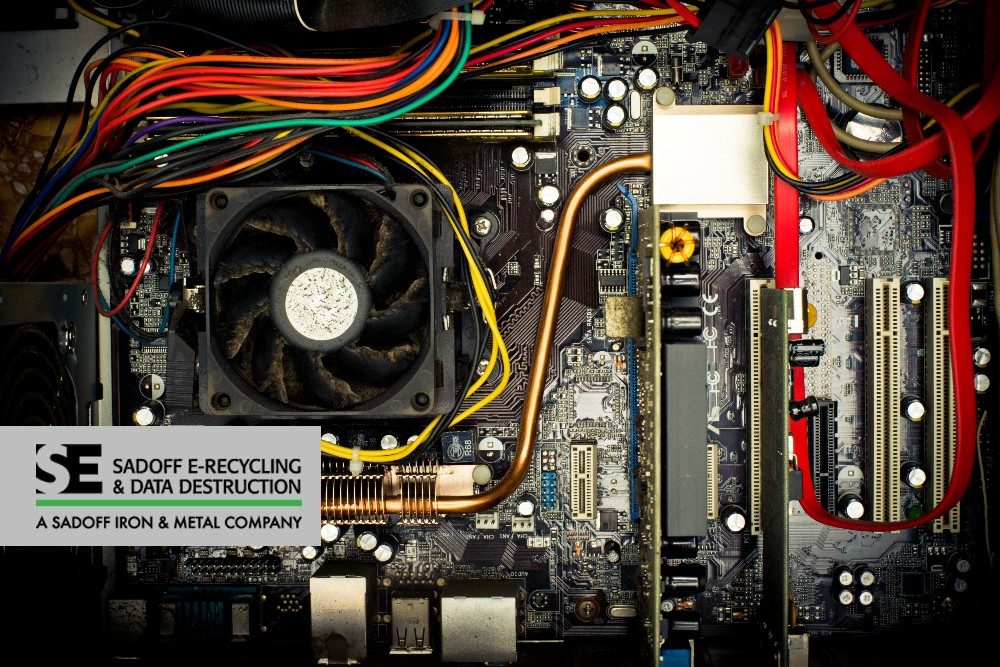 19
19 Feb
Did you know that most of your computer can be recycled? From the metal casing to circuit boards and even some plastics, valuable resources can be recovered, preventing them from ending up in landfills. However, when it comes to safely and responsibly discarding old computers, not all components are created equal. Some computer parts contain hazardous materials, while others hold sensitive data that requires secure destruction.
That’s where specialized e-recycling companies like Sadoff E-Recycling & Data Destruction come into the picture. We’re experts in ensuring the entire computer disposal process is environmentally sound and your data privacy is protected.
The Non-Recyclables of a Computer
Here’s a closer look at common computer components that cannot be recycled in traditional e-waste streams:
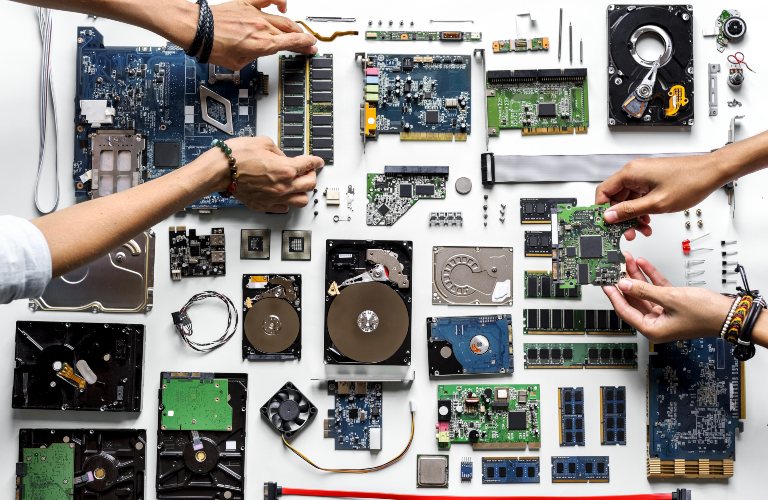 Batteries—Many computers, especially laptops, contain lithium-ion batteries. These batteries pose a fire hazard if mishandled and contain metals like cobalt that require specialized recovery processes.
Batteries—Many computers, especially laptops, contain lithium-ion batteries. These batteries pose a fire hazard if mishandled and contain metals like cobalt that require specialized recovery processes.- CRT Monitors—Older bulky monitors, known as Cathode Ray Tube (CRT) monitors, contain lead and other harmful substances. Improper disposal creates significant environmental risks, which is why these monitors require controlled recycling practices.
- Mercury-Containing Components—Some older devices, particularly old LCD screens, may contain traces of mercury. While regulations have largely phased out mercury in newer electronics, you may still come across it in legacy equipment. Mercury is highly toxic and must be handled by specialized disposal facilities.
- Hard Drives—This one deserves special attention. Although hard drives consist of mostly recyclable metals and plastics, the sensitive data they contain presents a different kind of problem. Simple deletion from your computer doesn’t truly wipe the data, leaving it vulnerable if your drive ends up in the wrong hands.
Read More: Why is Most Electronic Waste Not Recycled?
Does Non-Recyclable Mean Trash?
Though the components listed above cannot be e-recycled directly, they should still be disposed of properly and a specialized e-waste facility like Sadoff will be able to do that. CRTs can be dismantled, and hard drives, after data destruction, can be recycled. In fact, throwing things like batteries into the trash can lead to garbage fires and worse. It’s best to leave all electronic materials to a specialized e-waste facility like Sadoff.
Read More: Why is E-Waste Often Shipped to Other Countries?
The Problem With Unspecialized E-Waste Handling
While well-intentioned, tossing a computer component that contains hazardous materials into standard recycling, or worse, the regular trash, has detrimental consequences. Toxic substances can find their way into soil and groundwater, negatively impacting ecosystems and potentially reaching public water supplies. Hard drives not properly erased carry the risk of identity theft, corporate espionage, and exposure of private customer information. Additionally, discarded e-waste prevents the recovery of valuable resources that can be extracted through carefully controlled methods, burdening limited landfill space unnecessarily.
Why Sadoff is the Smarter Choice for Computer Disposal
At Sadoff E-Recycling & Data Destruction, we understand that proper e-waste disposal is critical, especially for businesses managing numerous assets. Here’s why partnering with us makes a difference:
- Comprehensive Handling—Our expertise ensures both your environmental responsibility and data protection needs are met. We manage hazardous components safely and implement rigorous data destruction processes.
- Certified Security—We hold industry-leading certifications for data destruction. Choose between full-drive overwriting, degaussing, or physical shredding. You receive transparent documentation for accountability and peace of mind.
- B2B Focused—We are a natural partner for businesses. From regular IT asset cycles to office moves or upgrades, we tailor e-waste disposal solutions to your needs.
- Environmental Commitment—We embrace a ‘whole computer’ approach to recycling, optimizing resource recovery, and minimizing the ecological footprint of old electronics.
What’s the Difference Between E-Waste and E-Scrap?
Don’t Just Recycle, Do E-Waste Right
Sadoff E-Recycling & Data Destruction makes responsible computer disposal easy and secure. When you partner with us, you contribute to a healthier planet and prioritize data security for your business. Contact us today and discover how we simplify your e-waste management while safeguarding your future.
Categorized in: Data Security, E-Recycle



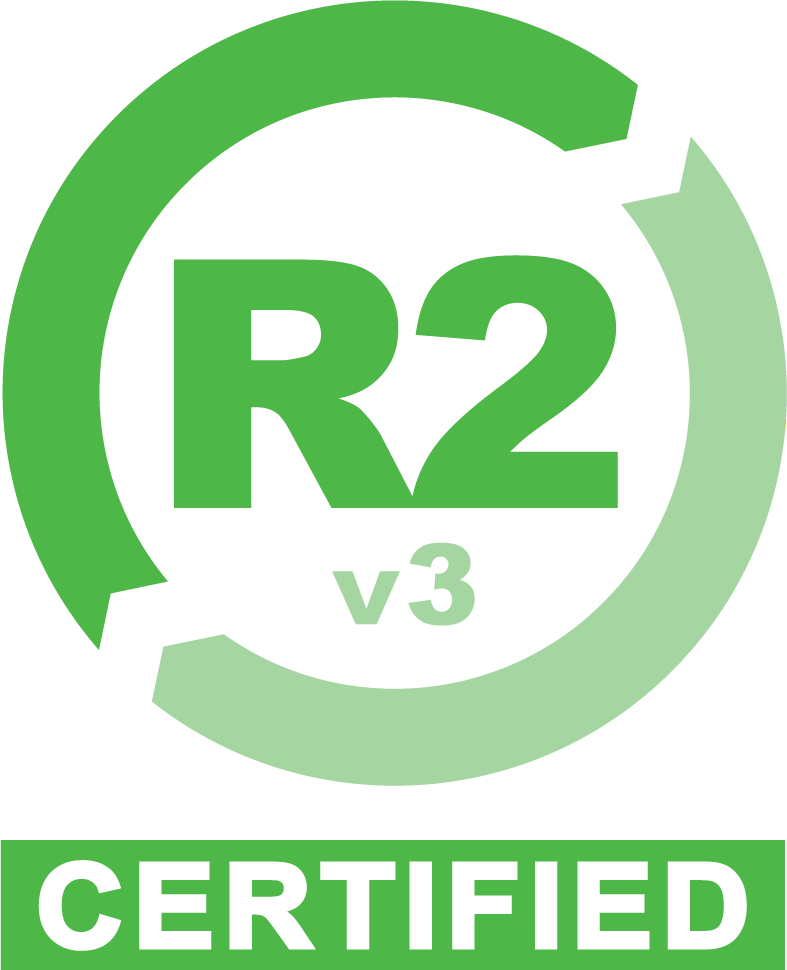
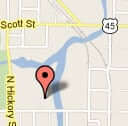 Google map directions
Google map directions
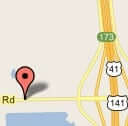 Google map directions
Google map directions
 Google map directions
Google map directions
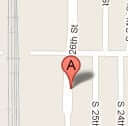 Google map directions
Google map directions
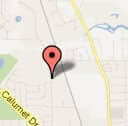 Google map directions
Google map directions
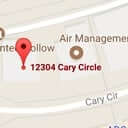 Google map directions
Google map directions
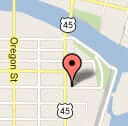 Google map directions
Google map directions